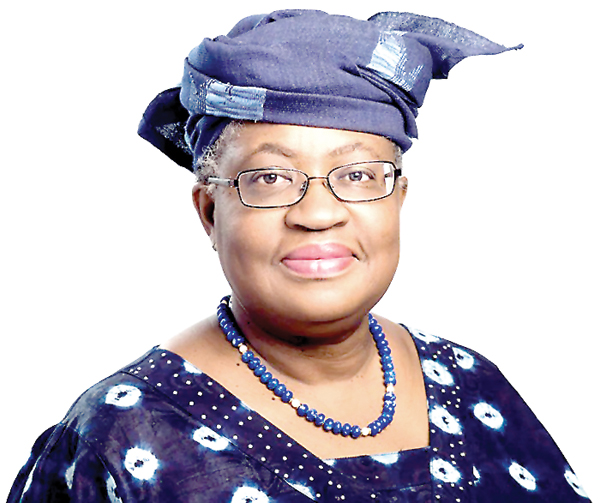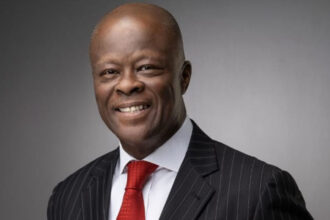THE World Bank has called on the Federal Government to remove fuel subsidy, reduce its indebtedness to the Central Bank of Nigeria (CBN) and increase tax on certain items as a way of shoring up the fortune of the economy.
The bank also raised its 2021 and 2022 economic growth forecasts for Nigeria to 2.7 per cent and 2.8 per cent respectively from the 1.8 per cent and 2.1 per cent growth projection it made in June.
These are contained in the November 2021 Nigeria Development Update (NDU) released by the bank in Abuja on Tuesday. According to the World Bank, the poor, for whom the subsidy was instituted, do not benefit from it. so, the government needs to dump it.
The World Bank report stated that, “Nigeria is the only country in the world with a universal price subsidy that applies exclusively to PMS. Universal price subsidies for liquid fuels are almost always regressive, as the rich consume far more fuel than the poor.”
It adds, “PMS subsidies are especially regressive because PMS is used primarily in light- and medium-duty motor vehicles, which are rarely owned by the poor. Since raising PMS prices tends to have minimal adverse effects on poor households, governments worldwide have typically prioritised the elimination PMS subsidies over those that apply to other fuels.
“However, Nigeria has done the opposite—eliminating all subsidies for liquid fuels other than PMS. Moreover, the Nigerian PMS subsidy is exceptionally generous, and in October 2021 the PMS pump price was the seventh-lowest among 168 economies surveyed at just ¦ 495 per liter.”
On overdrafts from the CBN, the World Bank report stated, “Faced with a widening budget deficit, policymakers have increasingly turned to costly CBN overdrafts, which are not properly integrated into the fiscal accounts.
“While Nigeria’s debt burden remains manageable for the time being, maintaining sustainable debt dynamics will require curbing the use of CBN financing for the deficit and addressing fiscal pressures to break the cycle of low growth and rising public debt.”
The World Bank also counselled the FG to pay attention to foreign exchange rate management as it is a major cause of inflation.
According to the bank, “The current mix of monetary, fiscal, foreign exchange (FX), and trade policies also plays a prominent role as a driver of inflation.”
It added that “Trade and FX restrictions, including the closure of land borders starting in August 2019, have increased prices for food and consumer goods, and imports of over 40 goods, including many staple foods, are currently ineligible for FX through formal windows.
“Nigeria’s exchange-rate management has resulted in the rise of parallel rates, which are closely linked to food-price dynamics.”
To increase revenue, the World Bank asked the government to increase taxes on cigarettes, alcohol and sugary drinks.
According to the bank, the government has “accelerated efforts to diversify its revenue stream; however, risks to the implementation of these reforms remain high.”
It also noted that, “These reforms include improving tax administration, especially for VAT, while also undertaking some significant policy reforms, such as implementing a levy on electronic money transfers, and additional excise taxes on alcohol and tobacco.
“While these reform efforts are expected to generate additional revenues of over ¦ 3 trillion a year, they may be challenging to politically implement in the run up to the national elections, planned for 2023.”
Meanwhile, the NDU also showed that the World Bank has raised its 2021 and 2022 economic growth forecasts for Nigeria to 2.7 per cent and 2.8 per cent respectively.
This is an improvement of 0.9 per cent and 0.7 per cent respectively over the 1.8 per cent and 2.1 per cent growth projection for the two years contained in the June 2021 edition of the NDU.
According to the report, “The Nigerian economy has recovered at a faster-than-expected pace in 2021, though the statistical base effect is largely responsible for its recent performance.”
It added, “The World Bank has revised its growth projections for 2021-2022 upward.
The June 2021 edition of the Nigerian Development Update forecast a 1.8 per cent growth rate for 2021, reflecting the expectations of declining incomes, heightened insecurity, and subdued oil production that prevailed at the time.
YOU SHOULD NOT MISS THESE HEADLINES FROM NIGERIAN TRIBUNE
Lagos Is Second Least Liveable City In The World For 2021
Lagos is the second least liveable city in the world for the year 2021. This is according to the most recent annual ranking put together by the Economist Intelligence Unit (EIU)…
CLAIM 1: A Twitter user claims UNICEF said any efforts to block children from accessing pornography might infringe their human rights.
VERDICT: MISLEADING!








